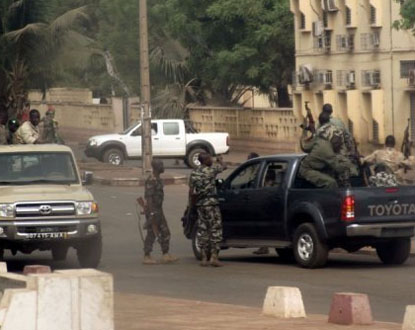Curiously, Africa became acquainted with coups d’état at the same time as it was savoring the delightful pleasure of “Freedom” granted by the independence of its various states, mostly obtained on a golden platter, but only gold in color. Since these independences until today, this continent has recorded nearly 70 coups d’état, which are said to be mostly orchestrated by foreign powers.
This series of coups led, for the first time, the Organization of African Unity (OAU) in 1963 in Addis Ababa to declare the new Togolese power, which had just assassinated President Sylvanus Olympio, as “undesirable.” This political stance by Africa’s supreme organization to “prevent” further coups on the continent was null and ineffective.
Again, in 1980 in Lagos, Sergeant Samuel Doe and his delegation were also banned from this summit for having, following a coup of unspeakable barbarity, assassinated President William Tolbert in Liberia. These political sanctions, which with hindsight resembled charades, thoroughly amused these military personnel thirsty for power and glory. They did not in any way dissuade these soldiers from carrying out their dirty work with the help and influence of foreign powers. In July 1999, the OAU decided to prohibit coups d’état on the continent by “decree.” The same year, almost as defiance to the African organization, soldiers mostly illiterate, uneducated, and without any societal or governmental plans carried out coups in Niger, Sierra Leone, Comoros, and of course, for the first time in Côte d’Ivoire. This new Ivorian power was also excluded from African summits.
Today, it is the “barbouzes”* of Mali and Guinea-Bissau who are undesirable, as were also those adventurers of another era, led by the “enlightened” Dadis Camara in Guinea. But how could these soldiers respect political decisions decreed by heads of state, the majority of whom themselves came to power through a coup? What legitimacy did they then have to prevent what they themselves had shamelessly committed, disregarding all morality and human life?
The independence of African states generated a lot of hope and freedom, both individual and collective across the continent. However, the democratization of these states, imposed by François Mitterrand in 1990 at La Baule, further unleashed all forms of greed for power and wealth through politics. Following this famous La Baule summit, a wave of democratization and freedom indeed sparked great hopes across the continent. Several national conferences were held in the 1990s. Elections open to opposition candidates were also held, even if no one was naïve enough to hope that dictators would organize elections and accept losing them overnight.
As Sassou N’Guesso said, “elections are not organized to be lost.” This mindset led to the confiscation of power by any means, including manipulating populations, instrumentalizing ethnicity and nationalism, violating human rights, and militarizing youth who were deeply disheartened by unemployment and lack of future prospects. In fact, this logic of power management, whose long-term outcome remains uncertain, facilitated the emergence of coups d’état to restore “constitutional normality.” This was the case in Mali in 1991 with Amadou Toumani Touré. In Ghana with Jerry Rawlings in 1981. In Côte d’Ivoire in 1999 with Robert Guéï while the country was bogged down in an ethnic and nationalist drift around the dubious concept of Ivoirité, which had become the center of all political activity since 1994.
Unfortunately, very often, the joy of the populations who welcome these coups in the hope of restoring democratic and constitutional normality is short-lived. They eventually discover that behind these good intentions often lie desires for power, wealth, and honors, as was the case in Côte d’Ivoire, leading up to the tragedy we have just experienced, in which everyone knows their share of responsibility.
by Macaire Dagry, political columnist at Fraternité-Matin
*Note: The term “barbouze” is French slang, typically used to refer to secret agents or those involved in covert operations.


